There will be ramifications to the international community’s approach to the Syrian conflict.
Since starting in Sarajevo in 1993, Robert King has covered every major conflict as a photographer and filmmaker. He has been kidnapped twice in Iraq and Afghanistan, but has recently returned to the region to cover the Syrian conflict. His book, Democratic Desert, and the film Syria: Ground Zero are a harrowing account of the civil war avoided by the international community.
In this interview with Fair Observer’s Anna Pivovarchuk, King talks about the state of the media industry, running food trucks in Rwanda, dealing with combat stress and the concept of luck in a war zone.
Anna Pivovarchuk: You went to art school. What made you pick up your camera and go to Sarajevo in 1993? That’s quite a big step to make: from art school to a war zone.
Robert King: Well, yeah. But we were well-read. I think we had a lot of classes in humanities and sociology, so that kind of peaked my interest. I was always kind of interested in global events, so before I graduated in 1993, I went to Israel for the 1991 Gulf War, and kind of waited to see what Saddam Hussein would do. And then I had to go back to finish my studies, and obviously I hadn’t made it in journalism to be able to afford not to go back to school — you know, to finish the opportunities. So I went back, and that summer I started traveling — I went to northern Iraq, after the Kurd story took place. I did stories on the Kurds, and a bit of traveling into Azerbaijan, Georgia and Armenia, trying to get into the Nagorno-Karabakh. I met some different journalists along the way, but more an exploratory kind of experience with the camera. Came back, and sold a picture to The New York Times.
When I was in school, I studied film and painting, and also started work on a multimedia documentary about a minority volunteer ambulance corps in Brooklyn. I think I started in 1991, so I was doing large-format 4×5, 35mm and shooting video and 16mm. I used to work on film — video sets in New York. That’s where my experience was and nobody was gonna hire me as a photographer at the time: I had sold one picture! I got more days doing video. I should have just listened to that in the beginning, but I was determined to be a photojournalist.
Then I received a travel grant when I graduated to return to the Zygres mountains in northern Iraq. But when I got there the border was closed, and a friend I met in Turkey helped me get into Sarajevo.
That’s when it was a struggle. That was when the filming for Shooting Robert King began. We got all our stuff stolen, so I had to leave.
I went back to New York, started doing some other stuff, working again, got some cameras, and then went back to Sarajevo. Had some success, found another agent, got with Camera Press in the UK in 1994. Went to Africa for eight months after that, from Johannesburg to Zaire. Most of the time I traveled on a motorcycle — still wasn’t selling much — and then I would ride a bean truck to subsidize my photography. When the war started, Solidariteit needed drivers, so they weren’t doing background checks — so much chaos going on that whoever was available could drive the beans. It was awesome. It was the most amazing experience ever, where I had never had so many people happy to see me. You have 8,000 tons of beans!
And then we would transport people, during the big Rwandan exodus in the Zaire. For logistics, you had to work with the military, and the French military had the best logistics, so we would help. They would set up these enclaves for Tutsis surrounded by Hutus, so the Hutus made this mass push into the Zaire. The French were not able to secure the area, so we were asked to transport the Tutsis to safe places. So in two days we moved a lot of people. I drove well over a thousand to safer areas in Rwanda. It was fun. We would break through Hutu military barriers. It was a good experience.
After, when I went back to Sarajevo, I started stringing for AP. I made good images, they got a lot of play, helped a little girl out who was bleeding in her eye — got evacuated to Italy for the PDS party, made her the guest of the Polio festival. I would bring this work back to art school, but I didn’t know the difference. Nobody said, “Hey, this is journalism and this is art.” This was always a fight for me: The photographic process was therapeutic when I did it as a kid, and even into high school it was even more therapeutic. The moment I said, “This is the direction” was in Natchez Mississippi in 1990 on New Year’s Day. I was in Mississippi taking pictures, and I had this collection of the photographs of the year, and that was it. That was the moment I said okay, “This is what I want to do, what the hell am I doing in art school?” I graduated, and I’m better off because I did.
Pivovarchuk: You mentioned that it was therapeutic for you to be in conflict zones. That the war didn’t “f**k me up, I was already f**ked up before I went,” and that’s why you were so good at it. Do you still think that’s true?
King: Absolutely! I lived in a house of alcoholics, where victims are made and survival is the mindset. There are certain people who are attracted to that type of environment where the voices have no voice, the suffering has no voice. They make it a duty or take the responsibility to use their trade to provide a voice for people who might not have it otherwise.
Pivovarchuk: Was that your main motivation?
King: I thought I could make a difference. I thought I could change something. Maybe not in war, but at least bring attention to subjects that might otherwise be ignored.
Pivovarchuk: Is that still your motivation now?
King: Yes, in many ways. I still like it. Not so much the voice — obviously with Twitter, cellphones — they still need us, but not as much. Now everybody has their own voice. But I do think that new technology allows for the people to tell their own story. So before, you could give them a sound byte, but now you can give them a documentary — a platform to tell their own story. I still believe in that.
I think the public is extremely visually literate. They want long form journalism, they want informative journalism, but they don’t want CNN. CNN doesn’t work. We don’t need another English accent telling us what’s going on in the world.
Obviously there’s a format that traditional TV companies believe younger people want, and they’re not listening to the populace who want people to tell their own stories, for the most part.
Pivovarchuk: Your first agency fired you while you were in Sarajevo. What weren’t you giving them that they wanted?
King: I was asking too much. This was my first experience, and I was following people whose experience I could trust. Obviously, it doesn’t matter how much experience you have in wars. There’s a lot of chaos, and sometimes it doesn’t work like it should and you get pinned down and it’s bad news. We didn’t even really have an objective other than “let’s try to draw fire.” I was traveling with video guys, and obviously that’s what they need. They need a mortar zipping through the air, cutting through the trees, and some smoke and some fire. That was pretty scary. But more scary was getting shot up on that road in Cacilliac Vitez with Richard Parry [director of Shooting Robert King]. We planned everything — just bad place, wrong time. We’re just lucky that no one got hurt.
You can get frustrated with the industry because a lot of us are idealists when we get in. It’s always a disappointment when you get to see that you’re not a part of the party, so to speak.
Pivovarchuk: What does it take to be part of the party?
King: A part of the party means you’re on expenses: two bottles of wine each night while eating Camembert and escargot and fresh bread. That’s a party. Playing cards and smoking Monte Cristos in the evening. In Sarajevo, journalists were making money running water, running cigarettes, running food. It was unregulated, not taxable cash, and this was the way things were done in an analog environment.
It’s a struggle for everybody, these bad places. Sarajevo was no party for everyone, I can tell you. They were drinking and smoking — good for them. When you’re in it you’re a bit cynical, and you can laugh at yourself and not take yourself too seriously. I take the job seriously, but not myself. I can poke fun at my job, because it is just a job. I think you can be cynical about it, and I think it’s healthy. It’s a healthy examination. You have to laugh at yourself. How do you grow? How can you evolve? How does technology evolve if you can’t be cynical and analyze it, and really be critical and deconstruct the industry? If you can’t deconstruct it I don’t think it can improve.
Pivovarchuk: You said the media is a decaying industry, that it underestimates what the people want to see. Is this the main problem?
King: Absolutely! I think the people demand and want total interconnectivity. Look at the porn industry. The public want an archive; they want searchable visuals. They desire to have their speakers vibrate in their hands. It’s content. What do the people want? They want video. What are the TV companies gonna do? We’ve already bought their HD TVs, their flatscreen TVs, their 3D TVs, their 4K TVs. Next they’re gonna sell the world on Internet-ready TVs. It’s done. Bam. Finished.
Media corporations don’t control the channels, they don’t control the feeds into the Internet, they can’t control the YouTube feeds. All they can do is aggregate the content and hope to sell ads on it. That’s really changed and also created new opportunities for editors, such as social trending editors. These are positions that never existed before, for better or for worse. As they got rid of all the photographers, they hired social trend editors so they can aggregate trending content. Then the media corporations realized, “Oh, shit, we need original content. Where did all the photographers go?”
And then they realize their product is s**t because they weren’t willing to send their writers to technical school to learn the basics, and the majority of them didn’t have the desire to learn video production on their own because we are creatures of comfort.
The more successful you get in the business, the less down time you have. Each person’s gonna deal with that information their own way, whether it’s six months or 20, 30 years later – or maybe never. Maybe they’re so good at it they just can compartmentalize it.
You have a multi-billion dollar industry that lacks direction and innovation, no vision whatsoever to anticipate the movements in our industry. There’s no charity in the news business.
Pivovarchuk: I went to a talk where the chief editor of one of Britain’s biggest newspapers said no one wants to read in-depth analysis, in response to being criticized for a CNN-like, sensationalist approach to their website. Do you have anything to say about what editors pick out in terms of content?
King: I think the public is visually literate. They want long form journalism, they want informative journalism, but they don’t want CNN. CNN doesn’t work. We don’t need another English accent telling us what’s going on in the world. We don’t need people doing these think-groups to see if viewers trust his blue eyes, or what happens when he or she looks to the left or right. What works is when a journalist is reporting next to a mother who just lost ten of her children. The character and integrity of that individual reporter is what’s going to make the public listen and engage.
Another example of how old media lacked vision and anticipation is as they all gutted their photography departments. Instagram evolves and sells for billions of dollars. The people didn’t get tired of good photography, it was the institution – the news industry that didn’t know what to do with photography. At the time, the only handful of dyslexics you’d find in a newsroom were photographers. Now that photographers were shown the door, I hope the industry realizes it takes a bit of creativity to reinvent their band in the eyes of the public.
Their best choice would have been to keep their photography department and transition them into video. If these media visionaries of yesterday had made the changes ten years ago, a lot of newspapers might have their own TV shows, and they might not be in the position they’re in today. They’d have online ad revenue, and lots of it. Maybe YouTube would have given them a hundred million dollar advance to produce content. But they’ll never know, because they never had the vision to prepare such infrastructure that would allow for such a financial investment. You look at new media, and traditional media’s just got it wrong. They just buy whatever’s successful and kill it.
They buy the brand and kill it. Old media is just a different world! They’re more conservative with their angles and edits. The people’s visual language is so much more intelligent — they’re filming through their cellphones, they’re not even looking at the image. So your mind is freer than the most professional photographer, because they are working both sides of the brain and their imagery is free and honest. It is my opinion that the public is more intelligent visually than a journalist or video reporter.
Pivovarchuk: One of your colleagues says in the film that he’s come to so many front lines it’s almost like taking a double decker bus. Is that an exaggeration?
King: I think the more successful you get in the business, the less time you have to process a lot of the information and trauma that you go through. In 1993, you would go from Sarajevo to Moscow. Then after that you go back to Sarajevo, then Rwanda. Then after Rwanda, I don’t know, Chechnya. And then you have a freak-out in Afghanistan. So when do you have that time?
I’d sell footage to this TV company, and I thought maybe, s**t, for sure they’d be nice. I mean hell, they won a bunch of awards with the footage. So I go and see them and they hand me a pamphlet about PTSD. They did their job by following the protocol set by their lawyers to establish a non-liable working relationship.
The more successful you get in the business, the less down time you have. Each person’s gonna deal with that information their own way, whether it’s six months or 20, 30 years later — or maybe never. Maybe they’re so good at it they just can compartmentalize it.
It was everywhere. The slaughter. The pain. It was in every, every inch. Every frame.
Do people get cynical? I think you have to, in some ways, because you’re looking at such horror. Obviously, I don’t find it appropriate to make jokes at the expense of victims or at the expense of your subject. I just think it’s a survival instinct. It’s something a survivor’s going to have to do to continue moving and not become disorganized in a situation where they can’t afford to become disorganized. They have to keep it together, keep it organized, and move on.
Pivovarchuk: So how do you deal with it personally?
King: I’ve dealt with it many ways. I’ve tried all ways. In my younger years, alcohol, drugs, sex, marriage, relationships, sports, as of late, drawing, therapy, sports and not so much writing. I used to spend a lot of time hunting, I would find other options to organize my down time such as when I was raising and selling heirloom tomatoes at the farmer’s markets and grocery stores. I was raising a lot of tomatoes, singing songs to them in the morning before harvesting them in the afternoon. I don’t know what I was doing, other than, “Ahh! I have land to grow my tomatoes!” and that was about it. There was a reason I had to do it, but it became therapeutic.
But in the end, even the farmers in the farmers’ bureau were saying “Please leave here. You don’t need to be raising tomatoes. You can do so much better with your life and talents.” Even the farmers were trying to kick me out. “You don’t belong here!” And then I went to Syria.
But how do I deal with it? I’ve dealt with it for so long by remaining in something called “survival mode,” and it’s something you learn early on. Is it healthy? No. Does it work? Yes. And so I made a lot of decisions based upon that mentality. But it worked. And then obviously when it doesn’t work you have to make adjustments, whether it’s seeking outside help, or finding a different hobby – drawing, gardening, nature – but the main thing that got me through all of it was just being in survivor mode. In the worst of the sense. Not where I’m taking advantage of people, but I’m in survival mode. I deal with the past on my own terms, at my own pace, at the distance — I see fit while living in the present. It’s not easy on anybody, it’s not easy on my son.
Pivovarchuk: But then again, you have to do it yourself. It’s not that you choose to or you don’t choose to, because if you don’t…
King: Yeah! You’re done!
I’m 45, I’m starting a new life, I’ve walked away from pretty much from everything materialistic that I own. Trucks, paintings, farmland, car, tractor – whatever, knick-knack bullshit. All this stuff became irrelevant, and I don’t know how or why it happened.
Pivovarchuk: You said something during the Frontline talk that really touched me – I think a lot of people in the audience were as well. You said that all the money you made from your time in Syria, you put into Democratic Desert because no one wanted to publish it, and you’d rather die than make a buck off the suffering of people portrayed in it.
King: I’m not giving this money away – there’s no charity. I got 120 books. I’m not gonna make any money on it. I mean maybe, if I sell it for $10,000 a piece. But I felt guilty — it was like blood money. Maybe that’s what happened: maybe I look at the material objects I possess as a result of blood money. Obviously not all of it, but a lot of my last 20-plus years has a relation to war.
Pivovarchuk: Before you went to Sarajevo, you said the only thing you knew about war was from books and films. Knowing what you know now, would you still have gone?
King: Absolutely, yeah. I would have been better off. I would have gone. I believed in the process, I still do. This work does make a difference. So yeah, I wouldn’t change. What was I gonna do? I don’t really have any regrets, but I guess what I learned was that open source is the only source. It’s better to include, try to include everybody. Don’t make it exclusive, make it for everybody. As my friend Rocko from Vice says, “If you can’t make money off free, then you don’t need to be in the business.”
Pivovarchuk: You’ve been through pretty much every single war since 1993, and you have been very affected by your time in Syria. You’ve been kidnapped both in Iraq and Afghanistan, and escaped. For most people that’s an experience that might prevent them from going back, and yet you chose to go back to the region. What is it about the Syrian conflict that is it different from other wars? Does it affect you more?
King: Yeah, in some way. You still have similar players, similar ideals, but there was no ISIS [Islamic State of Iraq and the Levant] in Chechnya. You might have had the beginnings of what was to become al-Qaeda, with Khattab and the Saif, but in the beginning it was really a bid for independence. In my opinion, it was only when the Turks and Saudis came in to start rebuilding the mosques that they converted to Wahhabism. And it’s very similar in Syria, in that here you had a pretty secular group of Muslims who were Westernized in many ways from Lebanon, Jordan and Turkey’s influence — and Russia’s, of course, due to the port – and then Bashar al-Assad’s close ties with the UK and all that stuff. You had this kind of self-determination by the people. We’re tired of this thug. So that’s how it was played.
People don’t need to know me because of Shooting Robert King, they need to know my work.
Many people believed it. And then much like Chechnya, but on a smaller scale — it was the Islamists that stole the movement from the Chechens. That’s what I saw: people not intervening. Extremism happened, kidnap – almost exactly like Chechnya, other than Assad’s not going to have his Vladimir Putin comeback where he totally destroys and rebuilds the area. It was left alone, but what was more dangerous was its location to Central Europe.
The first reason I went there was when Marie Colvin died. When she passed away it seemed like media coverage stopped. I was already in movement to go there, so I just went. When I got there I was filing and filing and filing — I was very angry that potentially she was targeted, or any journalist was targeted directly. And then the media just kind of backed off. I went there for that, and I just got so emotionally involved in the story, only because people were not buying the work. Nobody seemed to care. This is the first time I could say: “I’ve stepped over so many dead bodies today I cannot believe I haven’t made a single picture sale.” What the heck is going on? I wouldn’t say that, I was cussing really bad.
They just don’t care to encourage any type of resolution, resolve – it’s just not their problem. I think that’s a pretty dangerous approach and a pretty selfish approach. Obviously there’ll be ramifications for such approaches where they’re not willing to make the hard decisions. They’re willing to just pass the buck. Okay, thank God it’s not here yet. Or it’s not here. And they don’t understand that they forgot to put “yet.” And if there’s something that does take place, that’s related or traces back to Syria, what’s going to happen? There’s going to be an emotional reaction. If they’d been thinkers and planned it out for a long time they might have been able to come to a decision that was not reactionary, or based on pure emotion. It wouldn’t be a reactionary decision, it would have been a preventive decision; a decision where they saw the problems, they addressed the potential threats, and tried to build inroads to prevent those from taking place. It just didn’t seem like any of it took place. So I got really upset.
But I wasn’t trying to make icons out of suffering, and I definitely wasn’t trying to make art out of suffering. I was trying to tell the story, get it out as quickly as possible as many times as possible, and stick it to Assad.
I saw the importance of it and no one cared, so that motivated me even more. Normally when people say “no,” you know you’re onto something good. The more people push back – then you know you’re onto something that has the potential to really open up the debate on the subject. It’s a hard story, this is asking people to make a decision. Look at this. They have to come to the discovery of what’s comfortable for them. Is it comfortable when it’s in Afghanistan, southern Russia, or is it more comfortable when it’s in Bulgaria or Albania?
Pivovarchuk: That’s what I think is so important about your work. Your images and video are very graphic. There’s a lot of war reportage that is aestheticized. But your images are really in your face, very disturbing, very violent. Is there an importance in bringing those images to people who maybe don’t want to see them? Do you think it shocks people into action?
King: No. No. I think it can do the complete opposite. I think it can be dangerous to do it. But I wasn’t making any statement other than, “I refuse to make” – I couldn’t. I mean, how? It was everywhere. The slaughter. The pain. It was in every, every inch. Every frame. Every – oh, there were a few. But most of the time, I didn’t go out to make these. I refused to turn away from it. I refused to – I wanted this. Hold the camera away – I didn’t want to make this framing according to AP standards or some individual who I’ve never met or shared a beer with. I don’t want their morals. Because I know that a lot of the people who push morals and standards and practices — there’s a reason they do it. I didn’t go to that. I wasn’t going to edit it out; I couldn’t. There was no way. There was nothing there to edit out, other than an out of focus frame.
But obviously, I was making some adjustments to my work. I think we took out the heavy amputees. I think we tried very hard to be sensitive. These are civilians that are suffering. It’s an honorable thing to die for your country, as a soldier, but when has the last honorable war been fought? It just opens up a lot of questions, you know? I don’t want to discredit the sacrifice people have given to their country, because people believe in it, and they have every right to go fight for their beliefs. But they don’t have the right to take the life of another individual unless they’re being attacked. It’s another debate for another time, really.
But I wasn’t trying to make icons out of suffering, and I definitely wasn’t trying to make art out of suffering. I was trying to tell the story, get it out as quickly as possible as many times as possible, and stick it to Assad. Stick it to these people who were threatening the Internet, trying to control it, hacking us. It was a game. It was a game and the stakes were high. The game was you’re not going to kill indiscriminately, and it will be recorded and documented.
People don’t need to know me because of Shooting Robert King, they need to know my work. Shooting Robert King is an interpretation of an individual by two people or more. I didn’t edit it. And I still fight for that. I go to a place, “Hey, we’re going to show Shooting Robert King,” and I go “You’re going to show Ground Zero Syria, and you’re going to be happy with it. And if you don’t, then I’m not going to show up.” I have to use the film to allow me to tell my f**king news story. It’s pathetic. But whatever. Obviously other people recognize the work, and not the individual. And I think that’s important.
Pivovarchuk: Your colleague told you back in Sarajevo that he didn’t see the aura of luck in you that he saw in other journalists on the front line. I loved your response: “I can’t read auras.” But do you think such a thing exists? Can you be “lucky” in the war zone?
King: I don’t think anybody’s lucky in a war zone, actually. You’re never gonna get away. It’s a profession that just takes and takes and takes, and doesn’t really give all that much back. That could be defined as an unhealthy relationship in war. No one’s lucky. Everyone’s in trouble. Everyone is suffering. It’s only the very few that can escape. For those who do get out it doesn’t mean that they’re lucky. It means that whatever pre-planning was done, whatever contacts they had nurtured getting out of is just a job well done.
What if you were in Iraq and you found one ton of Saddam’s gold? Are you lucky or unlucky? I’d say you’re very unlucky, because you’re probably going try to relocate the gold or take it out of Iraq, and believe you will be successful because you were so goddamn lucky to find the gold in the first place. But in the end finding the gold is unlucky because it’s that lucky find which gets you killed. Nobody’s lucky in war, believe me.
The views expressed in this article are the author’s own and do not necessarily reflect Fair Observer’s editorial policy.
Support Fair Observer
We rely on your support for our independence, diversity and quality.
For more than 10 years, Fair Observer has been free, fair and independent. No billionaire owns us, no advertisers control us. We are a reader-supported nonprofit. Unlike many other publications, we keep our content free for readers regardless of where they live or whether they can afford to pay. We have no paywalls and no ads.
In the post-truth era of fake news, echo chambers and filter bubbles, we publish a plurality of perspectives from around the world. Anyone can publish with us, but everyone goes through a rigorous editorial process. So, you get fact-checked, well-reasoned content instead of noise.
We publish 2,500+ voices from 90+ countries. We also conduct education and training programs
on subjects ranging from digital media and journalism to writing and critical thinking. This
doesn’t come cheap. Servers, editors, trainers and web developers cost
money.
Please consider supporting us on a regular basis as a recurring donor or a
sustaining member.
Will you support FO’s journalism?
We rely on your support for our independence, diversity and quality.


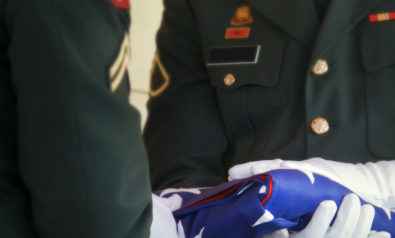
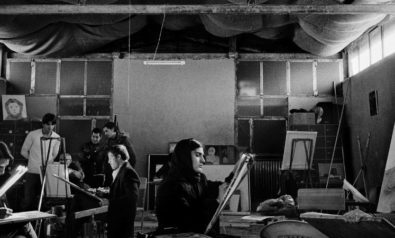

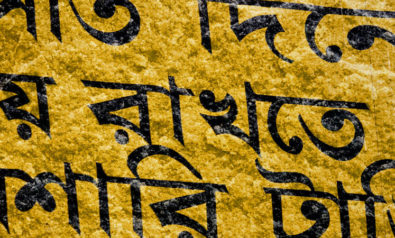
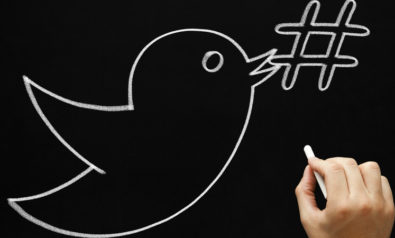
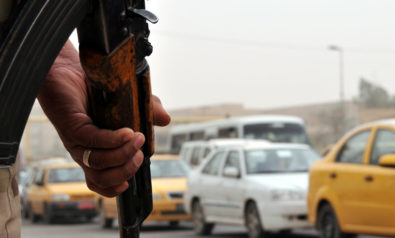
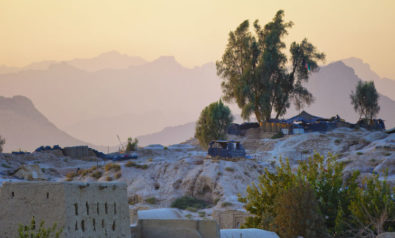
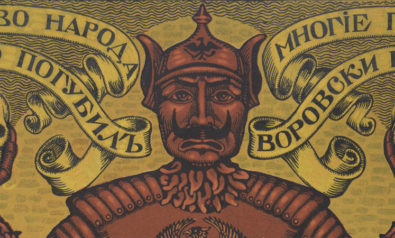
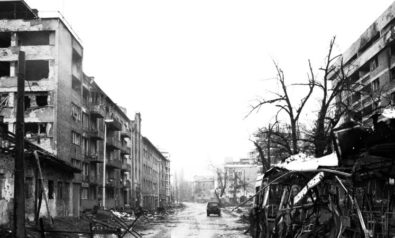

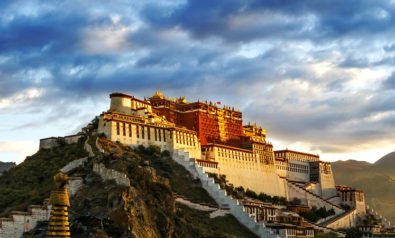
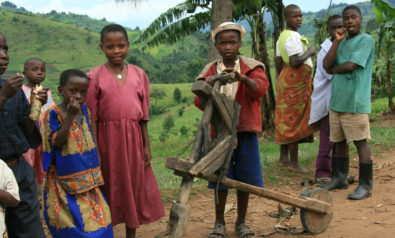
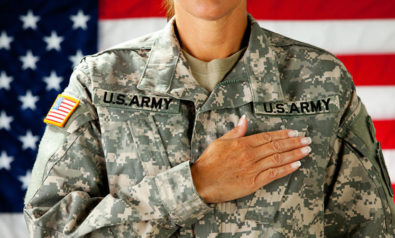


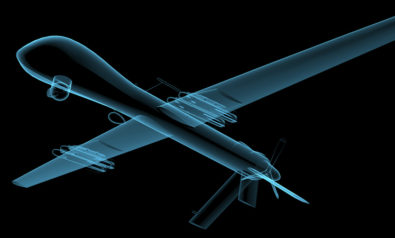
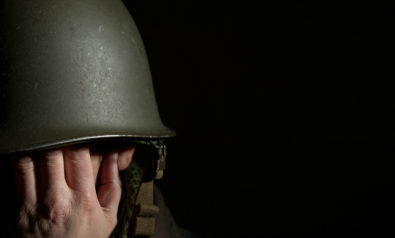
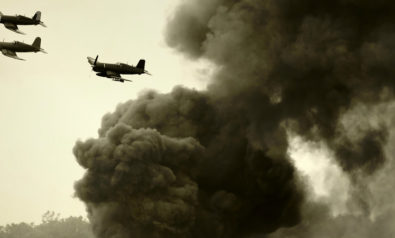
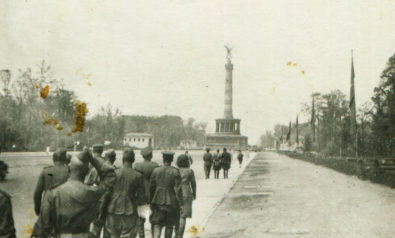



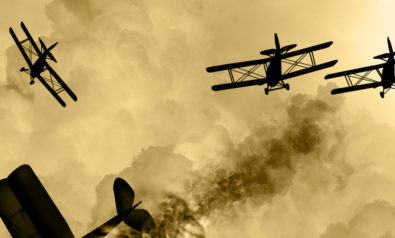
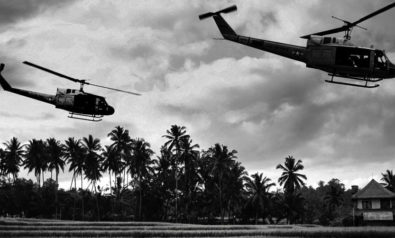

Comment